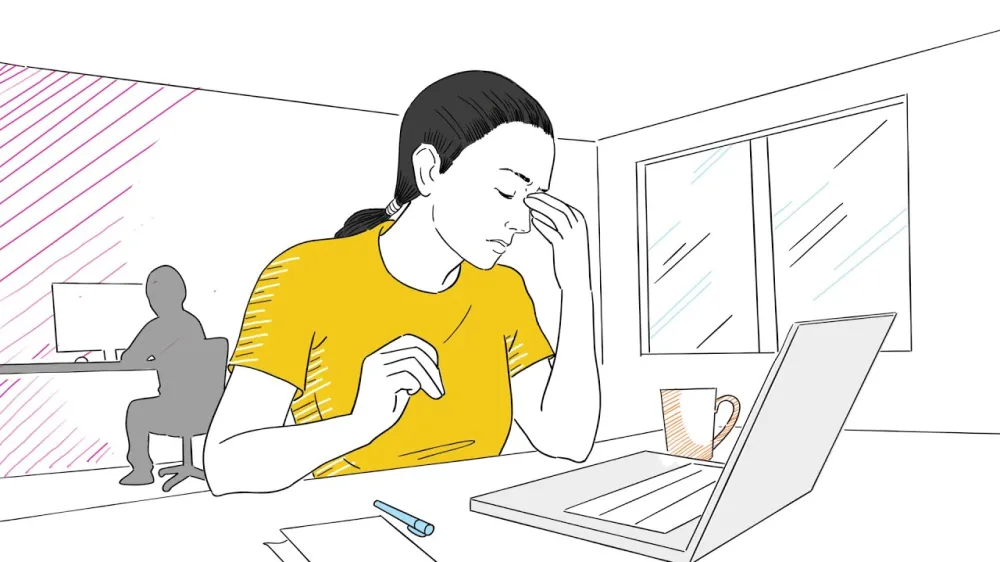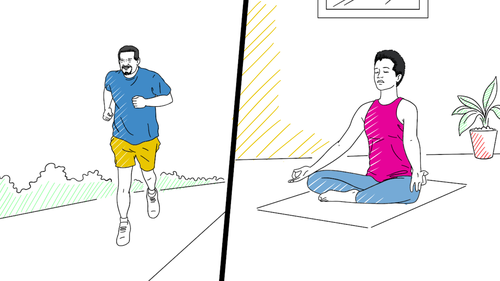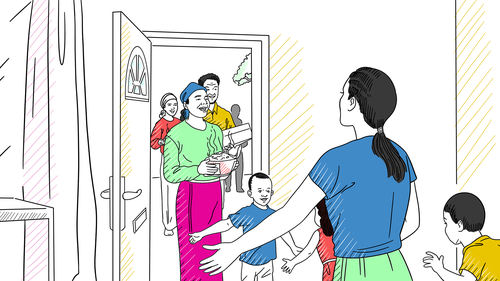Managing and Coping with Stress

What is Stress?
Stress can feel positive or negative, or a combination of both. For example, you might experience positive stress when planning a wedding or seeing your family for the holidays. Stress can also sometimes become overwhelming, which makes it hard to manage or cope with new changes.
Signs of Stress
Stress can affect your emotions and physical health. Your body responds to stress in different ways. Some common physical changes include:
- Change in your sleep schedule.
- Feeling tired or having less energy.
- Changes in your appetite.
- Physical pain like stomachaches, headaches, and back pain.
- Getting sick more often.
Stress can also change how you feel. For example, if you are feeling stressed, you might notice that you are:
- Constantly worrying or having difficulty relaxing.
- Having difficulty focusing, paying attention, or remembering things.
- Feeling bad about yourself or feeling lonely.
- Avoiding others.
- Becoming easily frustrated or annoyed.
Everyone experiences stress in their lives. However, overwhelming feelings of stress can lead to more serious problems like sadness, worry, high blood pressure, and a weakened immune system. When these emotions disrupt your daily life, it could be a sign to seek support. For example, consider seeking support if you’re having trouble eating or losing interest in activities that usually bring you joy.
Coping Skills to Help Adults Manage Stress
Coping skills are the ways people manage stress and take care of their emotional wellness. Common coping skills include:
Maintaining a Routine: Routines can help you feel safe and empowered. A routine includes doing certain activities at the same time or sequence every day or week, like waking up and going to sleep around the same time every day.
Getting Enough Sleep: Getting enough sleep helps your brain function so you can pay attention, manage tasks, and make decisions. You can practice good sleep hygiene by being consistent with your sleep schedule, eating healthy meals, and avoiding caffeine six hours before bedtime.
Moving Your Body: Moving your body or exercising for at least 15 minutes a day can reduce stress, help you sleep better, and improve your mood. Taking walks, stretching, and dancing are some ways you can move your body.
Honoring Your Culture: Connecting to your culture can help you manage and cope with long-term stress. Cooking meals from your culture, connecting with others, practicing religious beliefs, and playing music are some ways you can honor your culture.
Using these skills can help you think better, make better decisions, and manage the many demands of life and family. Even five minutes a day can make a big difference in your health and emotional well-being.


Disclaimer: The IRC received competitive funding through the U.S. Department of Health and Human Services, Administration for Children and Families, Grant #90RB0052 and Grant #90RB0053. The project is 100% financed by federal funds. The contents of this document are solely the responsibility of the authors and do not necessarily represent the official views of the U.S. Department of Health and Human Services, Administration for Children and Families.
